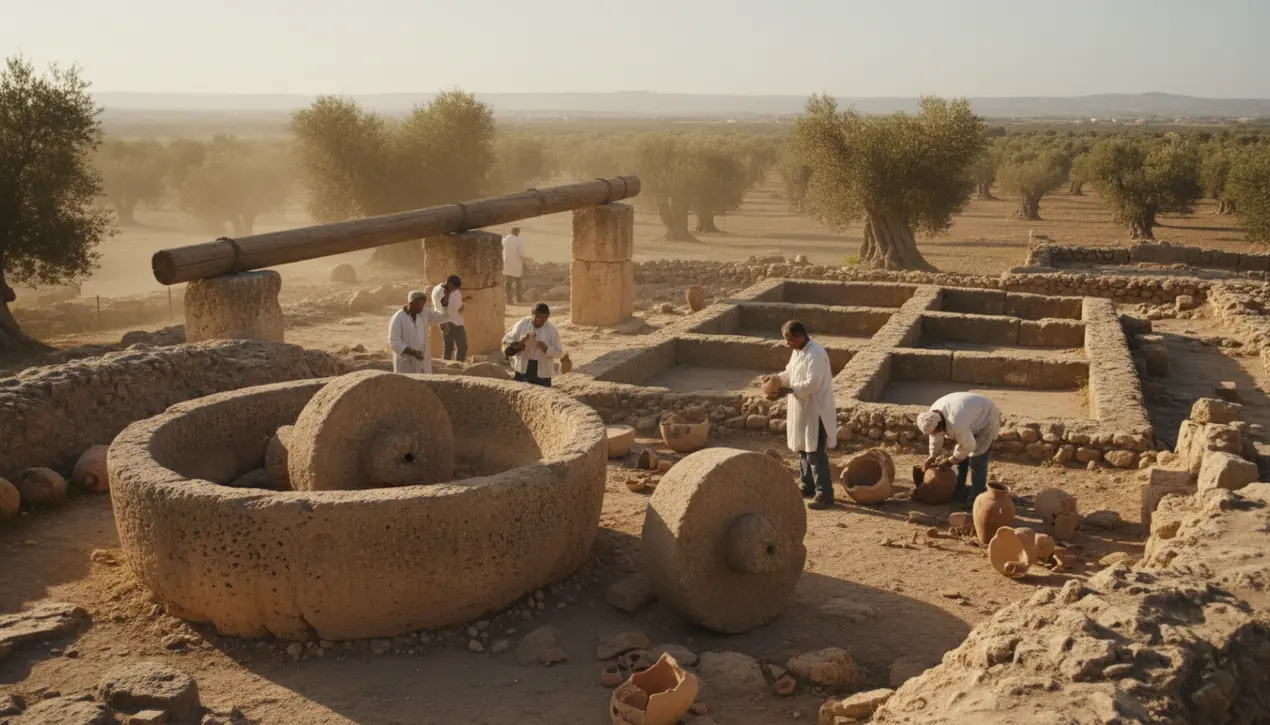
SciencearchaeologyExcavations and Discoveries
Roman Olive Oil Production Complex Found in Tunisia.
TH
Thomas Green
24 hours ago7 min read1 comments
The recent discovery of a sprawling Roman olive oil production complex in Tunisia is far more than a simple archaeological dig; it's a window into the intricate economic engine that powered an empire, a testament to a supply chain so sophisticated it rivals modern global trade networks. Unearthed near the ancient city of Simitthus, now modern-day Chemtou, this facility wasn't some provincial backwater operation.The scale is staggering—massive stone crushing basins, pressing floors carved from solid rock, and a network of settling vats for separating oil from water indicate a level of industrial output that would have supplied legions stationed across North Africa and fueled the bustling metropolis of Rome itself. Imagine the scene: under the relentless North African sun, a coordinated workforce, likely a mix of local laborers and enslaved people, would have operated a complex system where olives were first crushed by a rotating millstone, then spread onto mats and pressed under immense weight from wooden beams, with the precious golden liquid flowing into collection pits.This discovery profoundly underscores Tunisia's role not as a mere outpost, but as a vital economic hub, the 'breadbasket' and 'oil lamp' of Rome. The amphorae produced in nearby kilns, stamped with specific marks, would have been filled here and shipped across the Mediterranean, their remains now found from the docks of Ostia to the frontiers of Britannia, tracing the routes of ancient supertankers.This complex is a physical manifestation of Rome's genius for resource extraction and logistics, transforming a regional agricultural product into a commodity of imperial strategic importance, used for everything from cooking and lighting to religious ceremonies and personal hygiene. The find also raises compelling questions about the transference of technology, the environmental impact of such large-scale production on the ancient landscape, and the social hierarchies that governed this lucrative industry. It forces us to re-evaluate the economic interdependence of the Roman world, where a taste for a specific type of oil in a Roman villa could dictate the agricultural rhythm of an entire North African province, connecting lives across the sea in a web of commerce and culture that, as these ruins reveal, was built on a foundation of olive oil.
#archaeology
#ancient Rome
#olive oil production
#Tunisia
#trade
#featured
Stay Informed. Act Smarter.
Get weekly highlights, major headlines, and expert insights — then put your knowledge to work in our live prediction markets.
Related News
Comments
Loading comments...
© 2025 Outpoll Service LTD. All rights reserved.